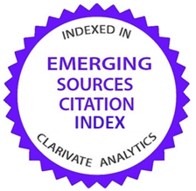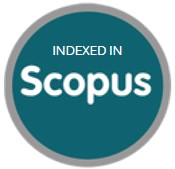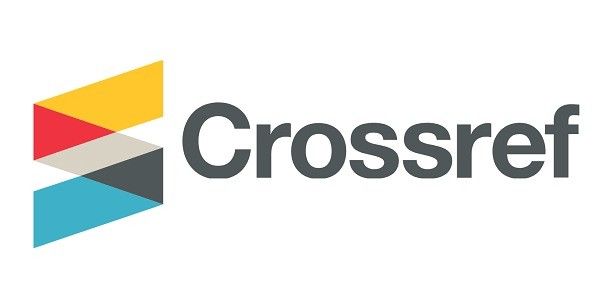El populismo como mecanismo de legitimación empresarial: el caso venezolano de PDVSA
DOI:
https://doi.org/10.21830/19006586.649Palabras clave:
empresa pública, estrategias de comunicación, gerencia de crisis, legitimidad organizacional, populismo, VenezuelaResumen
Este artículo ilustra el papel del populismo en la defensa de empresas estatales transgresoras, a partir del estudio del caso de la empresa Petróleos de Venezuela (PDVSA) y su relación con el Estado venezolano durante la era del autodenominado “socialismo del siglo XXI”. Para ello se hace una investigación descriptiva y de sistematización de datos sobre algunos eventos de transgresión socioambiental en los que incurrió la compañía entre 2010 y 2020. Los resultados apuntan al uso continuo de una retórica incendiaria, constituida por el antielitismo, la defensa de la soberanía popular y la consideración de una ciudadanía homogénea y virtuosa. Esto sugiere que el populismo también puede ser utilizado como un estilo discursivo particular para defender la legitimidad de empresas transgresoras subordinadas al poder.
Descargas
Referencias bibliográficas
Austin, L., Liu, B., & Jin, Y. (2012). How audiences seek out crisis information: Exploring the social-mediated crisis communication model. Journal of Applied Communication Research, 40(2), 188-207. https://doi.org/10.1080/00909882.2012.654498
BBC News Mundo. (2020, 24 de mayo). Buques de Irán: llega a aguas de Venezuela el primero de los barcos iraníes enviados con gasolina. https://www.bbc.com/mundo/noticias-america-latina-52786148
Bertelsmann Stiftung. (2020). BTI 2020. Country Report - Venezuela. Gütersloh. https://www.bti-project.org/en/reports/countryreport-COL.html
Boin, A., Hart, P., Stern, E., & Sundelius, B. (2007). The Politics of Crisis Management: Public Leadership under Pressure. Cambridge, UK: Cambridge University Press.
Brading, R. (2014). From passive to radical revolution in Venezuela’s populist project. Latin American Perspectives, 41(6), 48-64. https://doi.org/10.1177/0094582X14521991
Bruton, G., Peng, M., Ahlstrom, D., Stan, C., & Xu, K. (2015). State-owned enterprises around the world as hybrid organizations. Academy of Management Perspectives, 29(1), 92-114. https://doi.org/10.5465/amp.2013.0069
Buxton, J. (2014). Social policy in Venezuela. Bucking neoliberalism or unsustainable clientelism (Working Paper 2014-16). United Nations Research Institute for Social Development. https://bit.ly/2U8eCjv
Buxton, J. (2018). Venezuela: Deeper into the abyss. Revista de Ciencia Política, 38(2), 409-428. http://ojs.uc.cl/index.php/rcp/article/view/4674/4340
Claasen, C., & McNamara, T. (2020). The DeepWater horizon oil spill. En F. Allhoff & A. Sager (eds.), Business cases in ethical focus (p. 297). Broadview Press.
Claasen, C., & Roloff, J. (2012). The link between responsibility and legitimacy: The case of De Beers in Namibia. Journal of Business Ethics, 107, 379-398. https://doi.org/10.1007/s10551-011-1045-0
Coni-Zimmer, M. (2014). Organizational fields, transnational business governance interactions and the diffusion of CSR - Evidence from the oil industry (TGBI Project Subseries No. 19). Research Paper, 27(10), 7. https://bit.ly/2JSsA73
Contreras-Pacheco, O. E. (2018). Care ethics and crisis communication: Examining two experiences in South America. Cuadernos de Administración, 34(62), 20-32. https://doi.org/10.25100/10.25100/cdea.2018v34n62.6866
Coombs, W. T. (2019). Ongoing crisis communication: Planning, managing and responding (fifth ed.). SAGE Publications.
Corrales, J. (2015). Autocratic legalism in Venezuela. Journal of Democracy, 26(2), 37-51.
De la Torre, C. (2016). Populism and the politics of the extraordinary in Latin America. Journal of Political Ideologies, 21(2), 121-139. https://doi.org/10.1080/13569317.2016.1150137
Detomasi, D. (2015). The multinational corporation as a political actor: “Varieties of capitalism” revisited. Journal of Business Ethics, 128(3), 685-700.
Du, S., & Vieira Jr., E. (2012). Striving for legitimacy through corporate social responsibility: Insights from oil companies. Journal of Business Ethics, 110(4), 413-427. https://doi.org/10.1007/s10551-012-1490-4
Fantini, A., & Quinn, M. (2017). OPEC Annual Statistical Bulletin (52nd ed.). https://bit.ly/3klNKa6
Fry, J., & Ibrahim, E. (2013). Reassessing Venezuela’s organic hydrocarbon law: A balance between sovereignty and efficiency? Journal of World Energy Law and Business, 6(3), 234-259. https://doi.org/10.1093/jwelb/jwt005
Frynas, J. (2009). Beyond corporate social responsibility: Oil multinationals and social challenges. Cambridge University Press.
Gallegos, R. (2016). Crude nation: How oil riches ruined Venezuela. University of Nebraska Press.
Halff, A., Monaldi, F., Palacios, L., & Santos, M. (2020). Apocalypse now: Venezuela, oil and reconstruction. Columbia Global Energy Dialogues. Columbia University’s School of International and Public Affairs. http://www.tinyurl.com/y65gv7cs
Hameleers, M., Bos, L., & Vreese, C. (2017). “They did it”: The effects of emotionalized blame attribution in populist communication. Communication Research, 44(6), 870-900. https://doi.org/10.1177/0093650216644026
Hausmann, R. (2003). Venezuela’s growth implosion: A neo-classical story? In D. Rodrik (Ed.), In search of prosperity: Analytic narratives on economic growth (pp. 244-270). Princeton University Press.
Hawkins, K., Read, M., & Pauwels, T. (2017). Populism and its causes. In C. Rovira, P. Taggart, P. Ochoa, & P. Ostiguy (Eds.), The Oxford handbook of populism (pp. 267-285). Oxford University Press.
Hults, D. R. (2012a). Hybrid governance: state management of national oil companies. In D. Victor, D. Hults, & M. Thurber (Eds.), Oil and governance: State-owned enterprises and the world energy supply (pp. 62-120). Cambridge University Press.
Hults, D. R. (2012b). Petróleos de Venezuela, S.A. (PDVSA): From independence to subservience. In D. Victor, D. Hults, & M. Thurber (Eds.), Oil and governance: State-owned enterprises and the world energy supply (pp. 418-476). Cambridge University Press.
Insight Crime. (2018). Venezuela: A mafia State? Venezuela has become a hub of organized crime in the region. https://bit.ly/3klfjR9
Jagers, J., & Walgrave, S. (2007). Populism as political communication style: An empirical study of political parties’ discourse in Belgium. European Journal of Political Science, 46(3), 319-345. https://doi.org/10.1111/j.1475-6765.2006.00690.x
Kaufmann, D. (2017). 2017 Resource Governance Index. London.
Kerr, S. (2013). A critical analysis of multinational oil companies’ corporate social responsibility in Colombia and Venezuela. University of Bradford.
Kolk, J. (2010). Trajectories of sustainability reporting by MNCs. Journal of World Business, 45(4), 367-374. https://doi.org/10.1016/j.jwb.2009.08.001
Laclau, E. (2012). La razón populista. Fondo de Cultura Económica.
López, M. (2014). Venezuela: The political crisis of post-Chavismo. Social Justice, 40(4), 68-87.
López, M. (2018). Populism, 21st-century socialism and corruption in Venezuela. Thesis Eleven, 149(1), 67- 83. https://doi.org/10.1177/0725513618818727
Massey, J. E. (2001). Managing organizational legitimacy: Communication strategies for organizations in crisis. The Journal of Business Communication, 38(2), 153-182.
Moffitt, B. (2015). How to perform crisis: A model for understanding the key role of crisis in contemporary populism. Governement & Opposition, 50(2), 189-217. https://doi.org/10.1017/gov.2014.13
Morsing, M. (2011). State-owned enterprises: A corporatization of governments? Management Communication Quarterly, 25(4), 710-717. https://doi.org/10.1177/0893318911415600
Mudde, C. (2004). The populist Zeitgeist. Government and Opposition, 39(4), 541-563.
Müller, J.-W. (2016). What is populism? University of Pennsylvania Press.
Olsson, E.-K. (2014). Crisis communication in public organisations: Dimensions of crisis communication revisited. Journal of Contingencies and Crisis Management, 22(2), 113-125.
Palazzo, G., & Scherer, A. (2006). Corporate legitimacy as deliberation: A communicative framework. Journal of Business Ethics, 66(1), 71-88. https://doi.org/10.1007/s10551-006-9044-2
Papadopoulos, Y. (2002). Populism, the democratic question, and contemporary governance. In Y. Mény & Y. Surel (Eds.), Democracies and the populist challenge (pp. 45-61). Palgrave Macmillan.
Pearson, C., & Clair, A. (1998). Reframing crisis management. Academy of Management Review, 23(1), 59-76.
Riorda, M., & Rincón, O. (2016). Comunicación gubernamental en acción: narrativas presidenciales y mitos de Gobierno. Biblos.
Rooduijin, M. (2016). Simply studying populism is no longer enough. Nature, 540, 317.
Roper, J., & Schoenberger-Orgad, M. (2011). State-owned enterprises: Issues of accountability and legitimacy. Management Communication Quarterly, 25(4), 693-709. https://doi.org/10.1177/0893318911415598
Schultz, F., & Raupp, J. (2010). The social construction of crises in governmental and corporate communications: An inter-organizational and inter-systemic analysis. Public Relations Review, 36(2), 112-119. https://doi.org/10.1016/j.pubrev.2009.11.002
Schulz, A., Müller, P., Schemer, C., Wirz, D., Wettstein, M., & Wirth, W. (2017). Measuring populist attitudes on three dimensions. International Journal of Public Opinion Research, 30(2). https://doi.org/10.1093/ijpor/edw037
Stavrakakis, Y., Kioupkiolis, A., Katsambekis, G., Nikisianis, N., & Siomos, T. (2016). Contemporary left-wing populism in Latin America: Leadership, horizontalism, and postdemocracy in Chávez’s Venezuela. Latin American Politics and Society, 58(3), 51-76. https://doi.org/10.1111/j.1548-2456.2016.00318.x
Suchman, M. (1995). Managing legitimacy: Strategic and institutional approaches. Academy of Management Review, 20(3), 571-610.
Svensson, P. (2009). Embracing left and right: Image repair and crisis communication in a polarized ideological milieu. Management Communication Quarterly, 22(4), 555-576.
Taggart, P. (2002). Populism and the pathology of representative politics. In Y. Mény & Y. Surel (Eds.), Democracies and the populist challenge (pp. 62-80). Palgrave Macmillan.
Transparencia Venezuela. (2020). PDVSA: combustible de la corrupción. https://transparencia.org.ve/project/ petroleo/
Ulmer, R., Sellnow, T., & Seeger, M. (2015). Effective crisis communication: Moving from crisis to opportunity (3rd ed.). SAGE Publications.
Vásquez-Lezama, P. (2016). Catastrophes et incertitude dans le contexte de la crise du pétrole au Venezuela : Enquête ethnographique sur l’explosion de la raffinerie d’Amuay (Tepsis Papers: hal-01297571). Centre d’Etudes Sociologiques et Politiques Raymond Aron, Ecole des Hautes Etudes en Sciences Sociales, Paris. https://hal.archives-ouvertes.fr/hal-01297571/document
Wolkenstein, F. (2016). Populism, liberal democracy and the ethics of peoplehood. European Journal of Political Theory, 18(3), 1-19. https://doi.org/10.1177/1474885116677901
Yin, R. (2014). Case study research: Design and methods. SAGE Publications.
Zagorski, P. W. (2003). Democratic breakdown in Paraguay and Venezuela: The shape of things to come for Latin America? Armed Forces & Society, 30(1), 87-116.
Zerpa, F. (2020, 14 de junio). La producción petrolera de Venezuela cayó al mínimo desde 1945. Infobae. https://bit.ly/35kOt7n
Descargas
Publicado
Cómo citar
Número
Sección
| Estadísticas de artículo | |
|---|---|
| Vistas de resúmenes | |
| Vistas de PDF | |
| Descargas de PDF | |
| Vistas de HTML | |
| Otras vistas | |

























